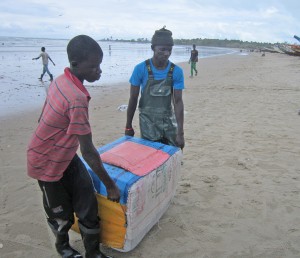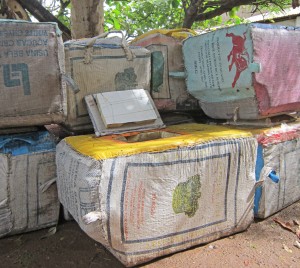
The Coastal Resources Center at the University of Rhode Island (URI) Graduate School of Oceanography, together with the National Sole Fishery Co-management Committee (NASCOM) in The Gambia, has launched a pilot project aimed at reducing post-harvest loss of sole at-sea. URI’s College for the Environment and Life Sciences fisheries center provided its expertise as well. The project is supported by a grant from the Rockefeller Foundation.
The project’s key objective is to determine if the use of ice and ice boxes aboard fishing vessels will reduce post-harvest economic losses at sea, improve the quality of sole harvested and deliver economic benefits throughout the supply chain of this export commodity. A traceability process also is being field-tested in parallel with the project. Both efforts aim to strengthen sustainability of the sole fishery, which is seeking Marine Stewardship Council certification.
From design to implementation, the project has involved multiple stakeholders, including fishermen, buyers, processors and exporters. Kaufland, a large retailer based in Europe that donated funds to NASCOM to support the move towards sustainability, also supports the project. NASCOM is used some of those funds to provide ice boxes to sole fishermen taking part in the study.

Learning from a six-week pilot implemented at two landing sites—Brufut and Gunjur —will inform changes in productivity and potentially could reveal added benefits across the value chain. The study will end in mid-September, but the efforts toward improving the fishery for all stakeholders will continue.
CRC will provide an update on the pilot project’s findings following its conclusion in September.


